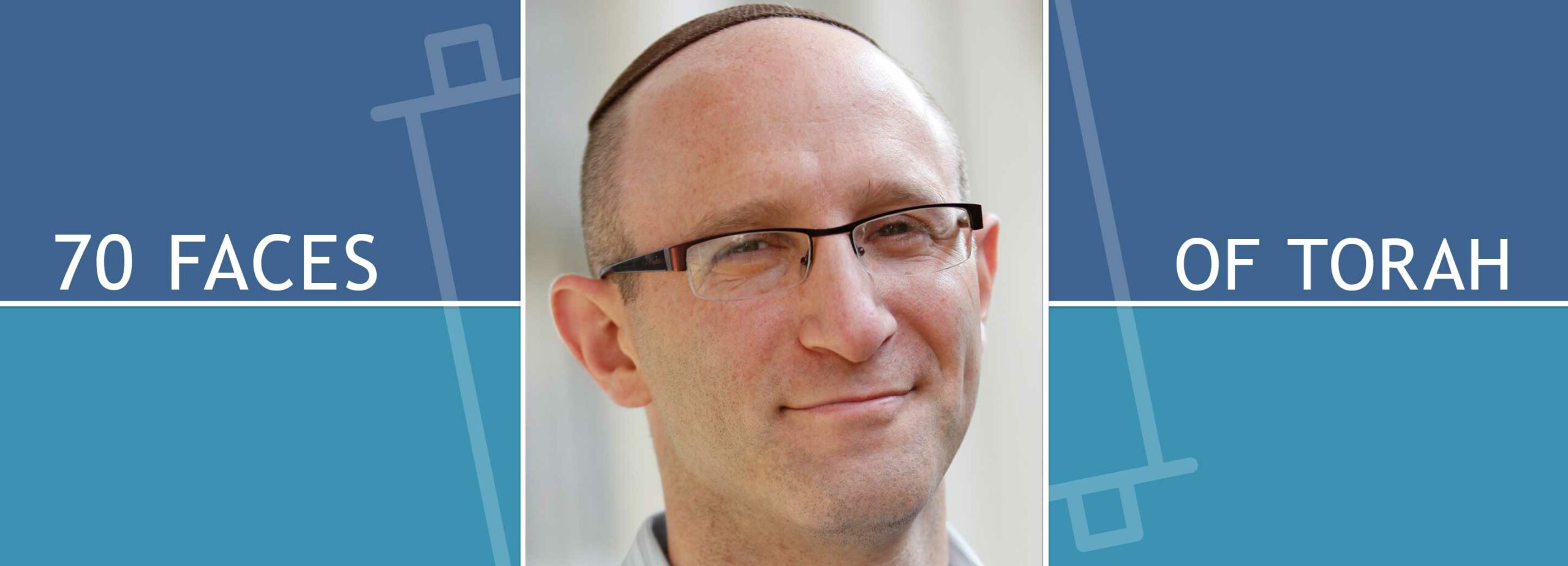Genesis On Joseph, Shaving, and Being Human

Parashat Miketz, Genesis 41:1-44:14
Current events have conspired to make Paris the moral heart of our world, calling us to reflect on where we are going as a world community.
The recent terror attacks in the City of Light have unleashed a staggering level of unfounded fear and demonization of Muslims and Syrian refugees, which has distorted, as it did after the attacks of 9/11, a legitimate conversation about liberty and security. And now the fate of our existence on this planet is in the hands of world leaders attending the Paris climate talks—leaders who don’t have a good track record of meaningful action on this critical issue.
If Paris is the heart of our world, it is hard not to fear we are headed for cardiac arrest.
Bizarrely, I find hope this week in the strangest of places in this week’s parasha: Joseph’s chin.
In Parashat Miketz, Joseph seizes the gift of circumstances to go from prison to power in Egypt, becoming second in command only to Pharaoh. At the critical moment of being summoned to the palace to interpret Pharaoh’s dream, the Torah gives us a wonderfully surprising, and revealing, morsel of information about Joseph’s preparation for his audience with Pharaoh: “he shaved and changed his clothes” (41:14). While certainly a testament to Joseph’s improved understanding of effective social interaction as well as interview acumen, the physical transformation suggests something deeper.
Shaving, according to Leon R. Kass in The Beginning of Wisdom: Reading Genesis, is a quintessentially ancient Egyptian act. The head and face, shorn of all hair, conceals “all signs of growth, change, and senescence”. Like that culture’s hieroglyph writing, which are static representations of the world, and worship of never-changing heavenly bodies, shaving, writes Kass, is the “perfect emblem” of the ancient Egyptian cultural attempt “to abolish change and to make time stand still”.
In contrast, Joseph’s still nascent Abrahamic tradition of origin is marked by an acceptance of time and change. As Kass contends, the followers of this new way are “enjoined to embrace the temporality of human existence because of their attachment to the timelessness of God and the permanence of His promised care,” which is fulfilled in the course of time.
This new path charts a course through what Milton Steinberg, in his luminous essay “To Hold With Open Arms,” describes as the seemingly irresolvable tensions between our desire to cling to life and the need to accept our transient existence. The relationship with God as pioneered by the mythic Abraham facilitates the negotiation of this paradox. With God, each moment of our lives becomes more precious as we sense the Divine promise and power of them. Simultaneously, they become easier to let go of because they are not ours— they “belong to the universe and the God who stands behind it.” We may have the privilege of enjoying them for a moment, but “they are always on loan, due to be recalled.” In our relationship with God—and I would add our participation in traditions that makes our lives part of an ongoing chain–we can, Steinberg writes, we can embrace life, “but with open arms.”
In becoming outwardly Egyptian, Joseph inhabits the liminal space between two worlds, with an Egyptian body and an Israelite soul. And in his dream interpretation, he seems to bring an Israelite sensibility to bear. Pharaoh’s dream of seven lean cows consuming seven healthy cows and seven empty ears of corn consuming seven ripe ears of corn are, as Kass writes, “static images of dynamic time” (565). Joseph understands that Pharaoh’s dreams are a message of the passage of time, of the impermanence of existence, and the need to confront that reality.
At the risk of oversimplification, there is something strikingly reminiscent of ancient Egyptian culture in our reluctance to respond adequately to climate change, and in those who seek false security in the demonization of Muslims. They both smack of a delusional fantasy that rejects the reality of time passing and of life being insecure—as if by pretending that climate change isn’t happening, or that Muslims in general are the source of our insecurity and should be purged or quarantined, we can actually make or keep our lives consistent and safe.
As we debate legitimate concerns about climate change and economic development in one case and liberty and security in the other, we would do well to remember Joseph who, even as he immersed in a world of wishful fantasy, found survival and a life of meaning in facing the challenges and the reality of mortality, and in connection to people and values bigger than himself.
Rabbi Daniel Klein is director of admissions at the Rabbinical School and director of student life at Hebrew College.

